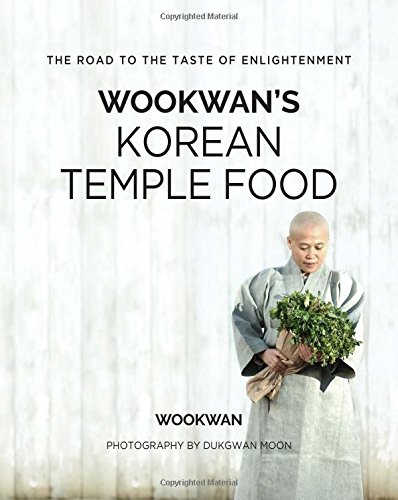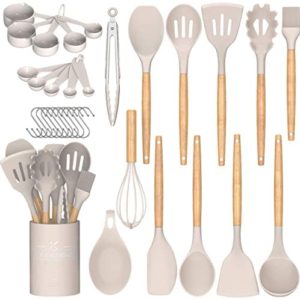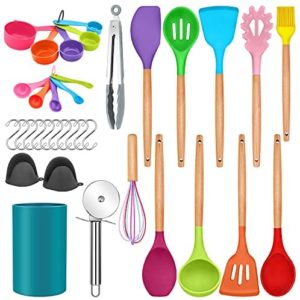Description
Price: $16.99
(as of Jun 09,2023 12:14:20 UTC – Details)
From the Publisher
![]()

Pickled Tofu
Protein Packed In Pureness Serves 6~12 / Preparation time: 40 minutes / Cooking time: 3 days
1. Pat dry tofu slices and sprinkle with salt.
2. Heat the pan and add grapeseed oil.
3. Pan-fry tofu slices until golden brown on both sides.
4. In a pot, add water, soy sauce, dried chili peppers, ginger, and kelp. Simmer over medium heat for about 30 minutes. Strain and cool.
5. In a separate container, arrange the tofu slices and pour in the pickling liquid.
6. Cover and leave in room temperature for 2 to 3 days.
7. After 2 to 3 days, drain the pickling liquid, add it to a pot and bring to a boil. Cool down.
8. Pour the cooled pickling liquid to container with the tofu again.
9. Use a plate to push down the tofu into the liquid, making sure to keep all tofu slices submerged under the liquid.
10. Repeat steps 7, 8, and 9.
11. Cover and refrigerate to store.
Whenever we make handmade tofu at the temple, we always pickle some of it with soybean paste or soy sauce. People think it is difficult to pickle tofu since they are very soft, but with this simplified recipe you can easily make and preserve pickled tofu for quite a long time: First, fry the tofu crisp with oil and pour lukewarm boiled soy sauce over them. After 3 or 4 days, filter the soy sauce only and boil it again. Pour the cooled down soy sauce onto tofu and repeat this procedure twice more.
1 kg tofu, firm, sliced 2 cm thick 3 tablespoons grapeseed oil 1/2 cup soy sauce 3 cups water 30 g ginger, peeled and sliced thinly 5 dried chili peppers 2 pieces dried kelp (5 cm x 5 cm) 1 tablespoon fine salt
![]()

What Is Korean Temple Food?
Temple food is a minimalistic and natural diet for people who practice buddhism.
Korean temple food is built on the philosophy of Buddhism combined with a long tradition of Korean cuisine. From growing and gathering the ingredients to the preparation of the dishes, all steps are in line with nature. The resulting food does not only provide nutrition for a healthy body, but preparing the food is a practice of meditation as well.
Temple food is religious everyday food for Buddhist practitioners, but it is also food shared with all those who come to visit temples. By sharing this food, they also share their hearts and minds. In temple food, all or most of ingredients are either farmed or foraged from nature. It similar to what we call the ‘farm-to-table’ process. However, since temple food is religious food, the entire process of farming, foraging, preparation, cooking, eating, and even cleaning, is considered as part of Buddhist practice and meditation.
With reverance for the wonders of nature and appreciation of the hard work of farmers, temple food is considered to be body and soul sustaining medicine. You eat only what your body needs so that there is minimal waste and environmental pollution.
Korean temple food may be the best vegetarian food.
In temple food, no animal products are used except for milk and milk products. The reason for not consuming meat is from the Buddhist philosophy of generosity and mercy, a practice of not sacrificing a life for one’s own survival.
There is also a restriction on using five pungent vegetables (green onions, garlic, chives, leeks, and onions). In Korean, these are called oh-shin-che, literally meaning ‘five spicy vegetables.’ It is believed that these five pungent vegetables, when cooked with heat, will lead your mind to have sexual desires, and when eaten raw, will bring anger into your mind. And so, these ingredients are forbidden for monks and nuns to minimize hindrances during their practice.
BALWOO (Photo) Balwoo is the term for the bowls used by Buddhist monks and nuns. Literally, balwoo means, “a bowl that holds exactly as much as needed,” no more, no less.
Publisher : ICP Inc. (May 7, 2018)
Language : English
Hardcover : 164 pages
ISBN-10 : 1732191409
ISBN-13 : 978-1732191402
Item Weight : 2 pounds
Dimensions : 10.9 x 8.75 x 0.7 inches





